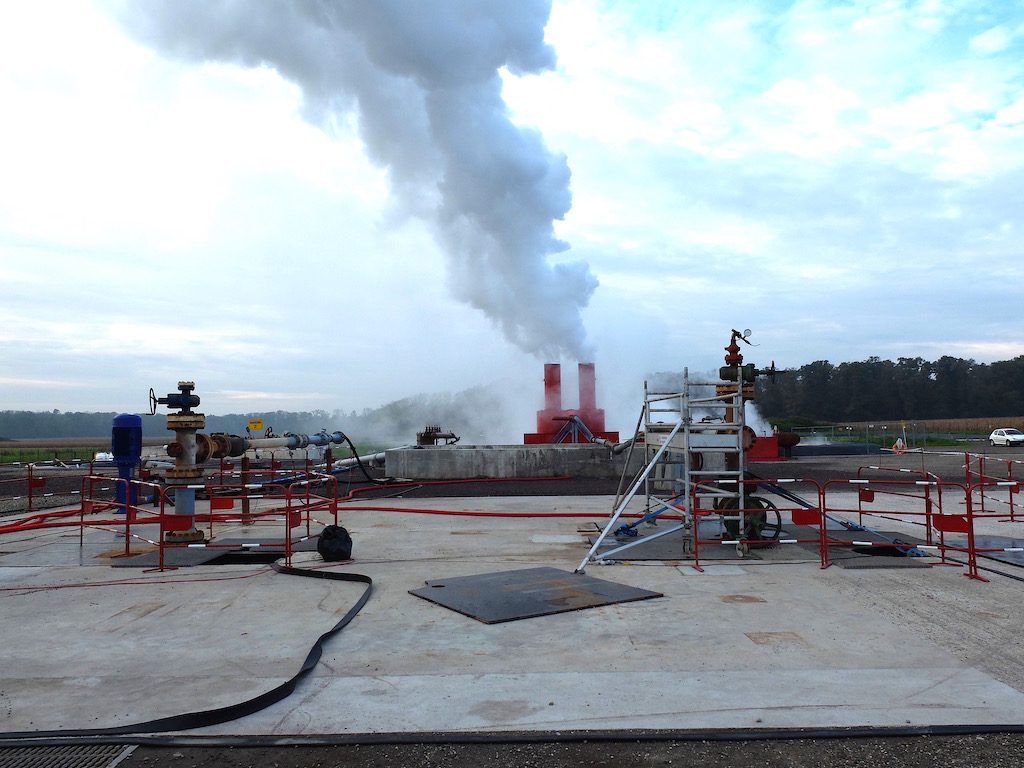Geothermal energy use for heat at Rittershoffen with a fraction of emissions from natural gas

A recent study by the Study Centre of French Utility ES Géothermie, within the EU-funded GEOENVI project finds that the use of geothermal energy only generates a mere fraction of emissions that would be emitted if natural gas were used in the case study of Rittershofen, France.
Geothermal energy used at the Rittershoffen heat plant is 40 times cleaner than gas in terms of impact on climate change. This is what a scientific paper revealed during the 2020 Geoscience & Engineering in Energy Transition Conference. The study was conducted by the MINES ParisTech University and the Study Centre of French Utility ES Géothermie, within the EU-funded GEOENVI project.
The GEOENVI project is pushing for the recognition of deep geothermal energy in the role it can play in Europe’s future energy supply in an increasingly sustainable way and to create a robust strategy to answer environmental concerns. It will engage with all geothermal stakeholders to ensure the exchange of best practices, the test of harmonized methods in selected areas and then, to facilitate its replication across Europe. The project is funded by the European Union’s Horizon 2020 research and innovation programme and coordinated by EGEC.
Philippe Dumas, EGEC Secretary General and GEOENVI project coordinator said “After a 2019 study from the French Environmental Agency proving geothermal energy is three times cheaper than natural gas for heating and cooling, this new research demonstrates how clean geothermal energy is”.
Guillaume Ravier, Process Engineer at ES-Géothermie and co-author of the paper said “These results confirm something we have known for quite some time already: geothermal energy is a promising renewable energy source for the decarbonisation of buildings and industrial processes alike. Europe would be far better off with more geothermal sources in its energy mix”.
The authors of the study applied the Life Cycle Assessment method developed as part of the GEOENVI project to the geothermal heat plant of Rittershoffen. This plant is located in Northern Alsace (France) and has an installed capacity of 27.5 MWth.
The study considered the Greenhouse Gas emissions and several environmental indicators for the Rittershoffen geothermal heat plant, comparing the results to fossil gas and biomass.
The Greenhouse Gas emissions of this plant are estimated as 5.9 gCO2eq/kWh, 40 times lower than those of natural gas. For “Ecosystem quality” (freshwater toxicity, acidification, chemical use), geothermal energy is between 1.5 and 2 times less impacting than gas. Human health has a similar result.
Guillaume Ravier concluded “This study is the evidence of the tangible benefits geothermal energy entails. We think the LCA methodology developed in GEOENVI and applied in this study is excellent to support local decision makers with science-based analyses of the little environmental impacts of deep geothermal projects.”
Source: Geoenvi